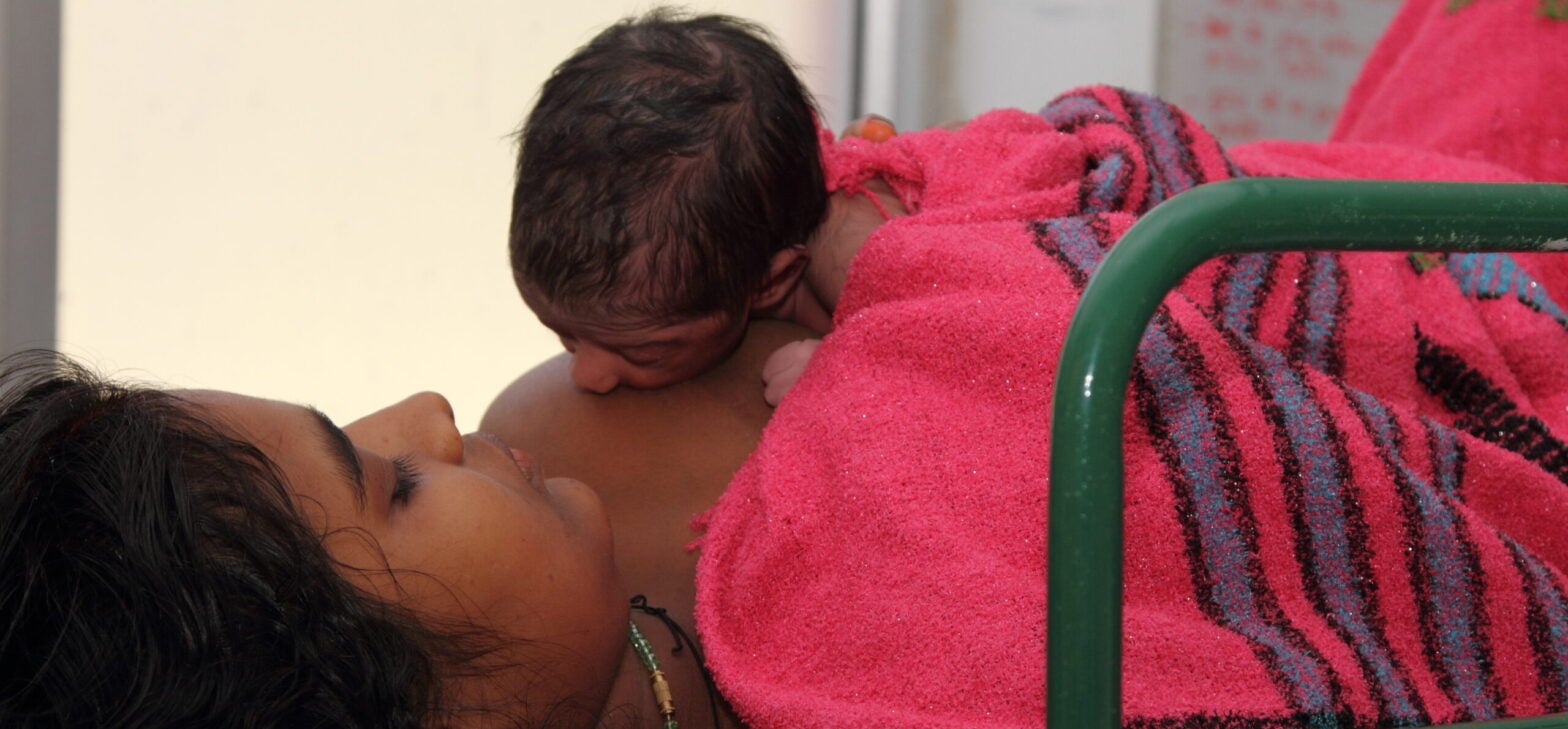Researchers from Ariadne Labs’ BetterBirth Program and study partners presented key findings from the Low Birthweight Infant Feeding Exploration (LIFE) study during an April 26, 2022 webinar.
20.5 million infants are born low birthweight each year. These infants account for more than 80% of newborn deaths and are at increased risk for illness, growth deficits, and developmental delays, and low- and middle-income countries bear the greatest burden.
Launched in 2019, the LIFE study followed over 1,100 low birthweight infants in India, Malawi, and Tanzania to document current feeding practices, growth patterns, and other health outcomes. From the data, researchers were able to identify characteristics of high-risk infants and effective interventions, highlight remaining evidence gaps to inform the future research agenda, and contribute to global guidelines with evidence-based action steps. For more on the study’s findings, read the LIFE Executive Summary.
During the webinar, researchers from Ariadne Labs discussed three of the key action steps from the study with a panel of site co-principal investigators:
- Key Action 1: Develop, evaluate, and scale programs that provide effective, specialized lactation support and feeding counseling that address the needs of LBW infants in facilities and communities.
- Key Action 2: Proactively identify and prioritize resources in early infancy to infants at highest risk for mortality and poor growth outcomes.
- Key Action 3: Evaluate the impact of early nutritional support on neurodevelopment among infants who have not regained their birth weight by two weeks.
Katherine Semrau, PhD, MPH, Director of Ariadne Labs’ BetterBirth Program, moderated the webinar. Linda Vesel, PhD, MPH, Scientific Lead for the LIFE study at Ariadne Labs presented results, and a panel of study site co-principal investigators discussed the findings. The panel included:
- Roopa Bellad, MD, DCH, MBBS, professor, Department of Pediatrics, Jawaharlal Nehru Medical College, Belgaum, India
- Tisungane Mvalo, MMED, MBBS, Pediatrician, University of North Carolina Project Malawi, Lilongwe, Malawi
- Karim P. Manji, MMED, MPH, MBBS, professor of pediatrics, Muhimbili University of Health and Allied Sciences, Dar es Salaam, Tanzania
Goldy Mazia, MD, MPH, Senior Advisor for Newborn Health at Save the Children US provided global perspectives on the study’s findings.
Key Takeaways
The webinar panelists discussed how the evidence from the study could be used to inform strategies for future interventions, including education and counseling services for new mothers and their babies.
“It’s very important to identify [risk] early along with tackling the difficulties of breastfeeding; there has to be some original intervention for the best outcome for these babies,” said Dr. Roopa Bellad.
Proper feeding and nutrition for low birthweight infants will make an impact over their entire life, Dr. Karim P. Manji stressed. This is “something that doesn’t require rocket science, that has been overlooked, and is right at our fingertips. Feeding.”
Dr. Tisungane Mvalo also highlighted the importance of tailoring intervention to the local context. “What works in one country won’t work in another country,” he said. “We also need to discuss with facilities and stakeholders in the community to understand what the challenges are and suggest solutions that will work in that setting.”
“Good quality care for small and sick newborns should be the ‘last frontier’ to address newborn mortality,” said Dr. Goldy Mazia. “One of the efforts [toward 2030 Sustainable Development Goals] was quality care for small and sick newborns….this study contributes greatly to that.”
“This (study) was very necessary to actually have scientific evidence for what we are talking about. There are very many anecdotal reports. Now here we have an evidence base,” said Dr. Manji.



